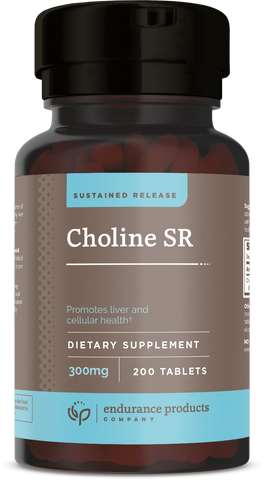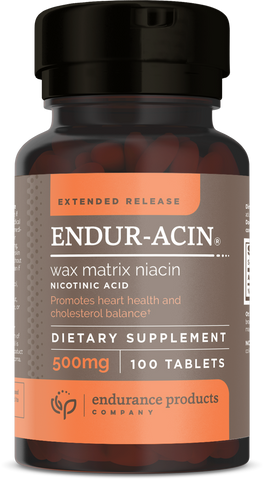If you find yourself asking for egg whites only you’re not alone. Egg yolks have been demonized for years for their high cholesterol content.
But guess what? It’s time for eggs to make a comeback.
Why the egg controversy?
The association between elevated LDL (the bad cholesterol) and cardiovascular disease was established back in the 1960s with the Framingham Heart Study. The study, launched under the direction of the National Heart Institute (now known as the National Heart, Lung, and Blood Institute) which is still ongoing today, was the first to find that high blood cholesterol increases the risk of cardiovascular disease. The study went on to suggest that dietary cholesterol should be limited.
Since then, the tenet to keep dietary cholesterol low has been one of the tenets of many conventional diets, including the DASH and the American Heart Association/American College of Cardiology diets. And since one egg contains about 200 mg of cholesterol, eggs have been listed as a no-no for those concerned with their blood cholesterol. In fact, the DASH diet recommends no more than four egg yolks per week.
However, the Framingham study did not find that eating foods high in cholesterol raised cardiovascular disease. And in fact, recent research has found that eggs are not the villain they’ve been made out to be. One meta-analysis looked at 16 studies on egg consumption and health, and found that eating eggs did not increase the risk of heart disease or stroke in those who were otherwise healthy.1 Other studies have come to the same conclusion.
The sunny side of eggs
There are many good reasons to eat eggs. They include:
- Eggs are a source of lutein and zeaxanthin. Eating a diet rich in these antioxidants is associated with better cognition as you age.2 Plus, they’re often called nature’s sunglasses because they deposit naturally in the macula. This is the area of the eye responsible for central, high resolution vision that allows us to read, see fine detail in pictures, and recognize faces. Increasing the density of the macular pigment is a key way that lutein and zeaxanthin help protect sensitive photoreceptors from harmful blue light as we age.3
- Eggs are a good source of choline. Choline is a nutrient similar to the B vitamins. It plays a key role in brain development, nerve cell communication, and lipid transport and metabolism. According to one study, 90 percent of Americans aren’t getting enough of it.4 (For even more about choline, see the blog post 3 Nutrients You Need Now here.)
- Eggs keep your appetite in check. Eggs are a great combination of protein and fat, both of which stay in your gut longer than carbohydrates. Translation: You’ll feel fuller for more time. In fact, one study found that overweight women who ate eggs for breakfast ate less during lunch, the rest of the day, and the next 36 hours than women who started their day with a bagel.5
The current body of evidence indicates that eating one egg per day is unlikely to have any adverse effect on cardiovascular health.6 And, whether they’re scrambled, poached or sunny side up, eggs make a delicious and nutritious meal.
If maintaining healthy cholesterol metabolism tops your to-do list of healthy habits, consider adding Extended Release ENDUR-ACIN® to your daily routine. Each high-potency tablet delivers a slow and steady release of the preferred form of niacin (nicotinic acid) for optimal comfort and benefit. Niacin is a source of enzyme cofactors responsible for the production of cellular energy in all tissues, which helps it to promote optimal cardiovascular health. The body also requires niacin to activate enzymes that synthesize, degrade and eliminate cholesterol, making it crucial in helping to maintain a healthy cholesterol balance.*
About Endurance Products Company
Endurance Products Company has been a trusted source of quality dietary supplements since 1978. Our sustained-release and extended-release tablets feature a unique vegetable wax matrix that releases nutrients in a slow, steady manner over a period of hours for optimal nutrient absorption and retention.
References
1. Shin JY, Xun P, Nakamura Y, He K. Egg consumption in relation to risk of cardiovascular disease and diabetes: a systematic review and meta-analysis. Am J Clin Nutr. 2013;98(1):146-59. Review. PMID: 23676423.
2. Johnson EJ, Vishwanathan R, Johnson MA, et al. Relationship between serum and brain carotenoids, α-tocopherol, and retinol concentrations and cognitive performance in the oldest old from the Georgia Centenarian Study. J Aging Res. 2013;2013:951786. PMID: 23840953.
3. Roberts JE, Dennison J. The photobiology of lutein and zeaxanthin in the eye. J Ophthalmol. 2015;2015:687173. Review. PMID: 26798505.
4. Wallace TC, Fulgoni VL 3rd. Assessment of total choline intakes in the United States. J Am Coll Nutr. 2016;35(2):108-12. PMID: 26886842.
5. Vander Wal JS, Marth JM, Khosla P, Jen KL, Dhurandhar NV. Short-term effect of eggs on satiety in overweight and obese subjects. J Am Coll Nutr. 2005;24(6):510-5. PMID: 16373948.
6. Fuller NR, Sainsbury A, Caterson ID, Markovic TP. Egg consumption and human cardio-metabolic health in people with and without diabetes. Nutrients. 2015;7(9):7399-420. Review. PMID: 26404366.
*These statements have not been evaluated by the Food and Drug Administration. This product is not intended to diagnose, treat, cure or prevent any disease.


